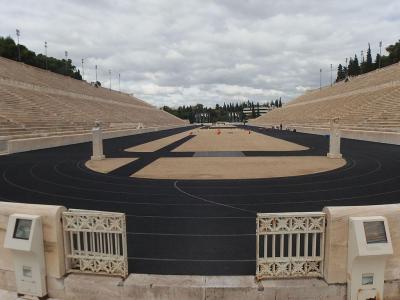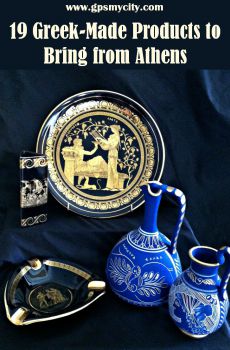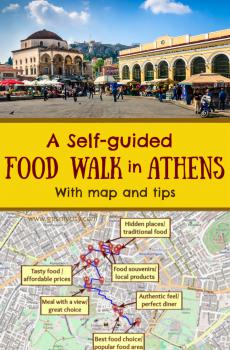Panathenaic Stadium, Athens (must see)
The Panathenaic is truly a remarkable historical site, being the only major stadium in the world constructed entirely of white marble. Its origins trace back to ancient times when it served as the venue for the athletic competitions of the Panathenaic Games, dedicated to the Goddess Athena and held every four years. The stadium underwent significant transformations, with a marble reconstruction in 329 BC and later expansion and renovation in 140 AD, accommodating up to 50,000 spectators.
Having fallen into disuse and disrepair after the 4th century AD, it was rediscovered and revitalized for the modern era, playing a pivotal role in the revival of the Olympic Games in the late 19th century. Despite its smaller scale compared to contemporary Olympic venues, the Panathenaic's elegant simplicity and iconic five Olympic rings continue to inspire awe. At the entrance, you'll encounter four stones engraved with the interesting history of the Olympics from the late 19th century to the present day.
The inaugural international Olympic Games in modern history were held here in 1896, with King George I of Greece opening the ceremony. Among participants were 241 male athletes from 14 countries, competing in 9 sports and 43 events. These early modern Olympic sports included athletics, cycling, fencing, gymnastics, tennis, shooting, swimming, weightlifting, and wrestling. Since then, athletes from across the globe have convened every four years, with the tradition enduring through the tumultuous 20th century wars.
Why You Should Visit:
A captivating place to explore, and you can enhance your visit with the free audio guide provided.
The on-site museum provides an engaging exhibition on the fascinating history of the Olympics.
Tip:
Don't miss the opportunity to climb to the upper tier for stunning views of the stadium.
Having fallen into disuse and disrepair after the 4th century AD, it was rediscovered and revitalized for the modern era, playing a pivotal role in the revival of the Olympic Games in the late 19th century. Despite its smaller scale compared to contemporary Olympic venues, the Panathenaic's elegant simplicity and iconic five Olympic rings continue to inspire awe. At the entrance, you'll encounter four stones engraved with the interesting history of the Olympics from the late 19th century to the present day.
The inaugural international Olympic Games in modern history were held here in 1896, with King George I of Greece opening the ceremony. Among participants were 241 male athletes from 14 countries, competing in 9 sports and 43 events. These early modern Olympic sports included athletics, cycling, fencing, gymnastics, tennis, shooting, swimming, weightlifting, and wrestling. Since then, athletes from across the globe have convened every four years, with the tradition enduring through the tumultuous 20th century wars.
Why You Should Visit:
A captivating place to explore, and you can enhance your visit with the free audio guide provided.
The on-site museum provides an engaging exhibition on the fascinating history of the Olympics.
Tip:
Don't miss the opportunity to climb to the upper tier for stunning views of the stadium.
Want to visit this sight? Check out these Self-Guided Walking Tours in Athens. Alternatively, you can download the mobile app "GPSmyCity: Walks in 1K+ Cities" from Apple App Store or Google Play Store. The app turns your mobile device to a personal tour guide and it works offline, so no data plan is needed when traveling abroad.
Panathenaic Stadium on Map
Sight Name: Panathenaic Stadium
Sight Location: Athens, Greece (See walking tours in Athens)
Sight Type: Attraction/Landmark
Guide(s) Containing This Sight:
Sight Location: Athens, Greece (See walking tours in Athens)
Sight Type: Attraction/Landmark
Guide(s) Containing This Sight:
Walking Tours in Athens, Greece
Create Your Own Walk in Athens
Creating your own self-guided walk in Athens is easy and fun. Choose the city attractions that you want to see and a walk route map will be created just for you. You can even set your hotel as the start point of the walk.
Plaka Attractions Walking Tour
Plaka, the oldest-and in many views, the most photogenic-district of Athens is where history isn’t just studied, it’s lived. Nestled at the foot of the mighty Acropolis, this is the "neighborhood of the Gods"-which sounds dramatic, but when you see it, you’ll understand why.
People have settled here since antiquity, so don’t be surprised if the walls seem to whisper ancient... view more
Tour Duration: 2 Hour(s)
Travel Distance: 3.6 Km or 2.2 Miles
People have settled here since antiquity, so don’t be surprised if the walls seem to whisper ancient... view more
Tour Duration: 2 Hour(s)
Travel Distance: 3.6 Km or 2.2 Miles
Walking Tour Around the Legendary Acropolis
Ah, the Acropolis of Athens-also known as "the sacred rock," because apparently, even rocks can have VIP status. This iconic hill has been home to temples, sanctuaries, and centuries of drama (both the theatrical and the historical kind). The ancient Greeks held this place in such high regard that they built architectural marvels that still dominate the city’s skyline. You can spot the... view more
Tour Duration: 1 Hour(s)
Travel Distance: 1.0 Km or 0.6 Miles
Tour Duration: 1 Hour(s)
Travel Distance: 1.0 Km or 0.6 Miles
Athens Food Walking Tour
Traditional Greek cuisine is one of the healthiest in the world, and prices in all but the flashiest establishments afford excellent value. The prevalence of vegetable and dairy dishes makes eating out a delight for non-meat eaters. Carefully selected appetizers (tzatzíki, dolmádes, kalamarákia) can constitute a full meal. Greece’s most famous slow-cooked oven dish, however, is probably... view more
Tour Duration: 1 Hour(s)
Travel Distance: 2.2 Km or 1.4 Miles
Tour Duration: 1 Hour(s)
Travel Distance: 2.2 Km or 1.4 Miles
Walking Around the National Garden
The National Garden is an impressive, historic park in the center of Athens, complete with artificial streams and duck ponds. Formerly known as the Royal Garden, it was commissioned by King Otto’s queen, Amalia, in 1838, reason why it is located directly behind the Old Palace (currently the Greek Parliament building). Not only is it a welcome refuge from the swirl of traffic just outside the... view more
Tour Duration: 2 Hour(s)
Travel Distance: 3.3 Km or 2.1 Miles
Tour Duration: 2 Hour(s)
Travel Distance: 3.3 Km or 2.1 Miles
Athens Introduction Walking Tour
Athens, the cradle of Western Civilization and one of Europe's oldest cities, originated between the 4th and the 3rd millennia BC. The story of Athens stems from a mythological contest between the goddess of wisdom and warfare, Athena, and the god of the sea, Poseidon. Both deities vied to become the city's patron. Poseidon's gift of a saltwater spring was deemed impractical,... view more
Tour Duration: 3 Hour(s)
Travel Distance: 4.2 Km or 2.6 Miles
Tour Duration: 3 Hour(s)
Travel Distance: 4.2 Km or 2.6 Miles
Useful Travel Guides for Planning Your Trip
Souvenirs Shopping: 19 Uniquely Greek Products to Bring from Athens
A cradle of European civilization, Greece, in general, and Athens, in particular, have long been - from the days of the Roman Empire up until present - the lure for travelers and history buffs seeking to find and bring home something memorable. Today's Athens (much as its ancient self) offers a...
A Self-Guided Food Walk in Athens
Just as many things in Greece, dining in Athens is very much laid-back with the majority of local eateries seeing patrons begin to congregate for dinner only after 8 pm. Eating-wise, the Athenians favor simplicity, leaning to the more casual and not so pricey tavernas where food is plentiful. To...
14 Best Cafes in Athens
While in Athens it is immediately noticeable that the local cafe culture thriving. Through this directory you will get a chance to visit very different establishments, ranging from "kafenia", to hip, modern coffee shops and get first hand experience of the diversity of contemporary Greek...











